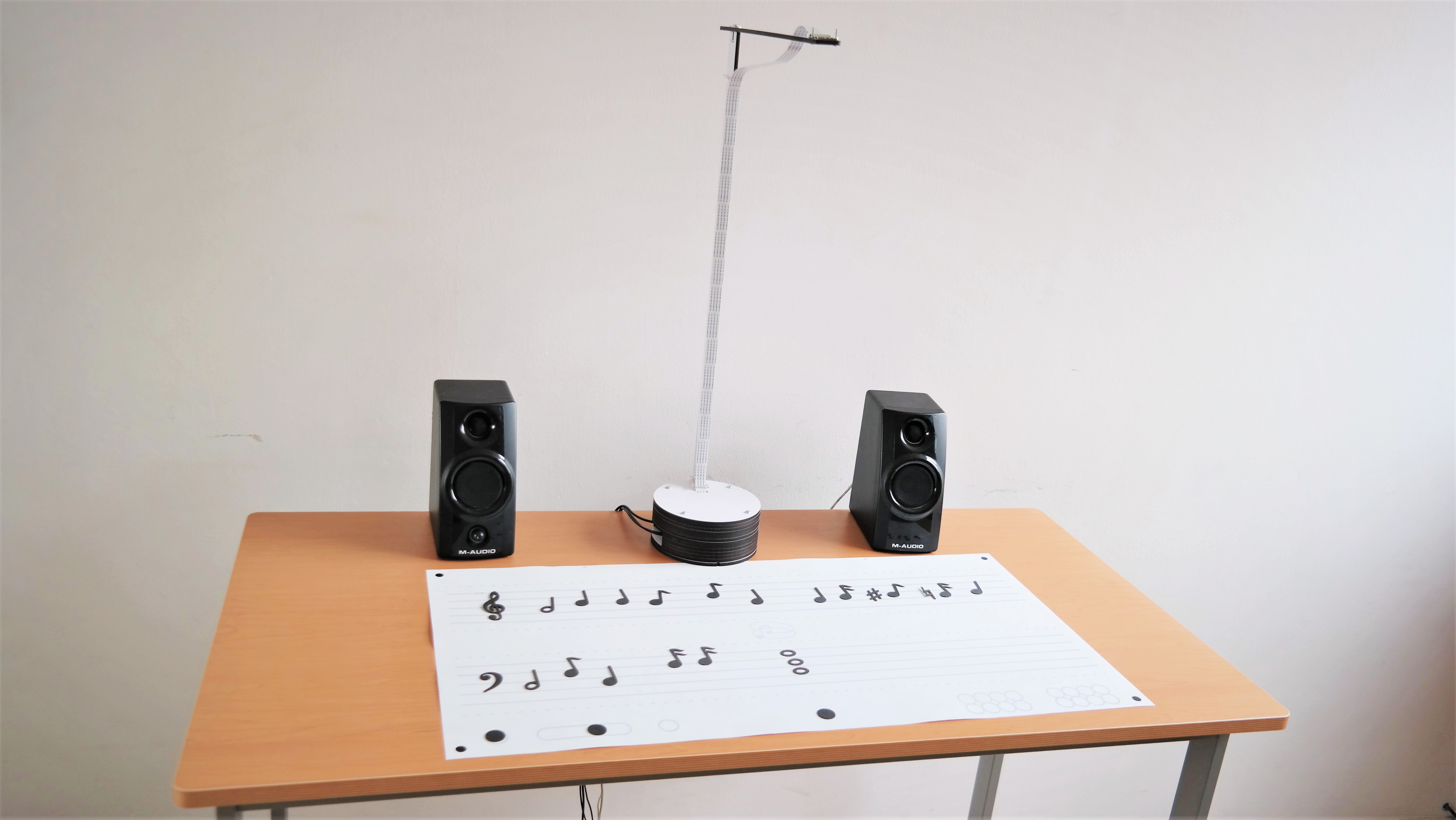The subject of a developing crowdfunding campaign, Notagrama caught our eye last month as a really interesting way of teaching music on the Raspberry Pi in a way very different to Sonic Pi. We reached out to creator Daniel Marcial to chat about it.
This article was written by Rob Zwetsloot and appears in The MagPi #63.
What is Notagrama?
The Notagrama is an educational product consisting of a large sheet with two staves, chips in the form of musical symbols, and a computer capable of reproducing the melody formed by the chips. It works with machine vision technology: it has a camera placed above the sheet with which the computer determines the position and shape of the chips to constitute a melody and reproduce it by the speakers. The Notagrama can be used to practise reading and writing scores, composing melodies, imparting music classes, or to have fun playing with musical notes. It is a project that allows interaction with musical symbols in a tangible and innovative way.
What’s your music background?
I studied piano for six years and I’ve been playing since I was nine years old. I have also taken courses on music production, mixing, harmony, and singing. I like playing the piano and composing music with Ableton Live.
How did the idea come about?
When I was at university, I made a project with machine vision technology: a score system for a real pool game. I liked the machine vision concept, so I wanted to build a music application with it. First I made sequencers and sliders with chips and illustrations, and afterwards I replaced circular chips with music symbols. That’s how Notagrama started.

Why use the Raspberry Pi?
I like Raspberry Pi because it’s very accessible and cheap. The most important thing for me is the large amount of information on the web about it. I built the Notagrama prototype with my first Pi, a Raspberry Pi 3.
Have you ever used Sonic Pi?
Yes, I have used it. I like it because it’s a very different way to compose. I have composed music in the traditional way, but when I discovered Sonic Pi I found a new way to do it. It’s very funny to listen your code!
What are your hopes for Notagrama?
I want to see a Notagrama in music classes around the world. I would like to know that I have contributed to the world’s music student community.
You can get in touch with Daniel about this project on Facebook, Instagram, and YouTube








